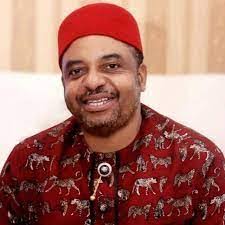Chinedu Martins, the federal representative for Ahiazu/Mbaise/Ezinihitte, has unveiled five pivotal bills aimed at deep-rooted reform in Nigeria’s creative, technical, emergency, and economic infrastructure.
These legislative proposals, which have already passed the first reading in the National Assembly, aim to address systemic inefficiencies while nurturing Nigeria’s untapped potential. Martins said his initiatives are grounded in the realities of modern governance and youth-driven innovation.
The bills include:
-
Establishment of a National Institute for Film and Entertainment Production, to boost Nigeria’s storytelling and content production capability.
-
Creation of the Federal Institute of Technical Education in Mbaise, designed to fill the country’s technical workforce gap.
-
Establishment of a unified emergency call centre with a short, accessible code for all Nigerians.
-
Formation of a National Independent Project Monitoring and Evaluation Agency, to ensure transparency in public spending.
-
A Real Estate Development Bank, focused on funding affordable housing and easing the national housing deficit.
Martins argued that Nigeria’s creative talents, particularly from the South-East, deserve a structured pathway to global competitiveness. He also highlighted the urgency of equipping Nigerian youth with modern vocational skills amid a failing public school system.
Equally urgent is the need for a standardized emergency number that can link citizens to ambulance services, fire departments, and police in real-time—something that could be lifesaving during national crises.
Martins’ proposal for a project monitoring agency aims to end the culture of abandoned projects and mismanaged funds. With the housing crisis worsening, the Real Estate Development Bank could provide a long-awaited fix by drawing in private investors with friendly interest rates.
As he called for public support and legislative collaboration, Martins insisted these bills are not just about policy—they’re about Nigeria’s future.










